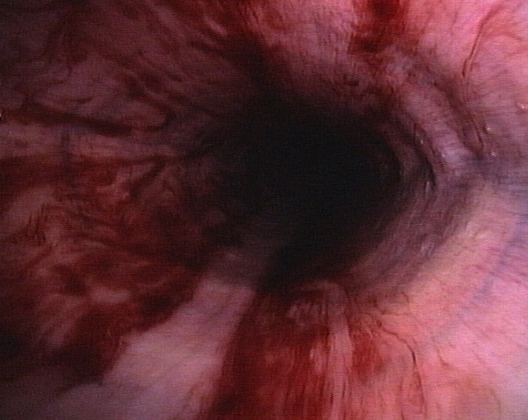The association between exercise-induced pulmonary haemorrhage and race-day performance in Thoroughbred racehorses
E.J. Crispe, G.D. Lester, C.J. Secombe & D.I. Perera
This prospective observational study aimed to determine whether exercise-induced pulmonary haemorrhage (EIPH) is associated with reduced performance in racing Thoroughbreds. Over 1500 racehorses competing at three racecourses in Australia between 2012 and 2015 were included. Endoscopy was performed between 30 and 120 minutes post-race (3794 exams in total) then two clinicians blinded to the horse’s identity and race performance evaluated video recordings of these examinations.
Approximately one-third of horses showed Grade 1 haemorrhage, 17% Grade 2, 5% Grade 3 and 1.2% s Grade 4. Grade 4 horses had a lower finishing position, were less likely to finish in the top three positions and collected less race earnings compared to those in the Grade 0 category. They also had a significantly slower average speed over the final 600 m and were more likely to be passed in the final 400 m. When compared to Grade 2 or less, Grade 3 and 4 horses were faster over the early sections of the race but were significantly slower over the final 600 m, more likely to decelerate over this distance and have a lower finishing position.
The findings confirm that high grades of EIPH are significantly associated with poorer performance, but there were no differences in performance in horses with none or lower grades of EIPH. The authors acknowledge many other factors that may affect individual performance.
Bottom line:
Severe EIPH negatively impacts race performance. Lower grades did not affect race performance.
--Ends--


